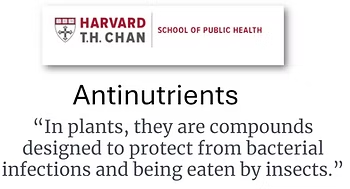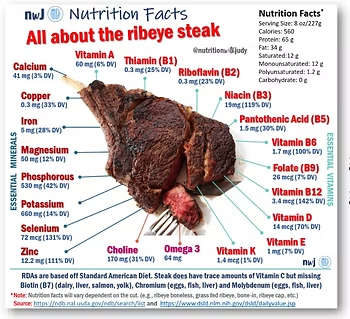Introduction to the Dark Side of Vegetables
Hello, everyone! I’m here to share insights from my extensive experience in the natural healthcare field. Imagine spending 35 years exploring how what we eat impacts our health, and then discovering something shocking about the very foods we’ve always thought were the healthiest.
The Problem with a "Healthy Diet"
Most of us think a diet loaded with vegetables and lacking protein is the way to go. But after 25 years of seeing patients, I’ve learned that this common belief might not be so accurate. It turns out, some of those veggies could be doing more harm than good!
What Are Anti-Nutrients?
Let’s break it down simply: anti-nutrients are natural compounds in plants that can interfere with our bodies absorbing nutrients. Examples include lectins in beans and phytic acid in grains. These substances are plants’ way of protecting themselves, but they can also affect our health.
Through years of clinical practice, I’ve seen the benefits of adjusting diets to include more protein and fewer vegetables that are high in anti-nutrients. This doesn’t mean cutting out all veggies, but being selective about our choices.
Real Stories from the Field
Take, for instance, a patient of mine who suffered from chronic digestive issues until switching to a diet that focuses more on proteins and select vegetables. The improvement was remarkable!
Understanding the Science Behind Anti-Nutrients
It’s important to dive a bit deeper into the science. Anti-nutrients can bind with minerals in our body, reducing our ability to absorb them. This can lead to a variety of health issues, from digestive problems to severe chronic conditions like Parkinson’s Disease, linked to high levels of certain plant compounds.
Rethinking Our Food Choices
Could it be that the very vegetables we eat to stay healthy—like spinach, rich in oxalates, or broccoli, full of goitrogens—are contributing to health problems? It’s a question worth exploring, especially if you’re struggling with health issues despite a “healthy” diet.
The key takeaway here is not that all vegetables are bad, but that we need to understand better which foods serve our health best. Integrating more meat and selectively choosing fruits and vegetables that are lower in anti-nutrients might just be the start of a healthier you.
Where to Go From Here
If you’re curious about how to adjust your diet for better health, consider exploring more about the carnivore-ish diet. It’s not about eliminating all other foods but finding what works best for your body’s unique needs.
In conclusion, while vegetables have their place in a balanced diet, it’s crucial to understand their complexities. Not all vegetables are created equal, and some might be hindering your health rather than helping. By reevaluating our diets and focusing on what truly benefits our bodies, we can lead healthier, more vibrant lives.
Frequently Asked Questions (FAQ)
Anti-nutrients are natural compounds found in plants (like lectins in beans and phytic acid in grains) that act as a defense mechanism for the plant. In our bodies, they can interfere with the absorption of essential minerals and nutrients. This can lead to a variety of health issues, from digestive problems to more severe chronic conditions, despite eating what is considered a "healthy" diet.
Yes, it's possible. Vegetables like spinach (high in oxalates) and broccoli (containing goitrogens) may contribute to health issues for some individuals. If you're struggling with chronic digestive problems, inflammation, or other unresolved health concerns despite eating a diet rich in vegetables, the anti-nutrients in these foods might be a hidden culprit.
A "carnivore-ish" diet is an approach that focuses on prioritizing protein sources (like meat) while being selective about vegetables and fruits. It doesn't mean eliminating all plants but rather reducing intake of those high in anti-nutrients and incorporating low-sugar fruits and vegetables that are better tolerated, based on your body's unique needs.
Based on clinical experience, the post shares remarkable improvements in patients with chronic digestive issues after switching to a diet lower in problematic vegetables. By reducing the intake of anti-nutrients, the body can better absorb minerals and nutrients, leading to reduced inflammation and alleviation of long-standing health problems.
No, not at all. The key takeaway is that not all vegetables are created equal. The goal is not to eliminate all vegetables but to understand which ones serve your health best. It's about tailoring your diet by selectively choosing fruits and vegetables that are lower in anti-nutrients and integrating more high-quality protein to support your body's unique physiology.









